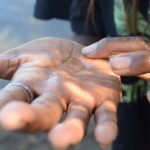31 Mar Environmental Humanities and Human-Environment Geography focus at the IAG23 Conference
The IAG2023 theme is Coexistence, Collaboration and Geography.
In the spirit of this theme, this conference seeks to recognise and foster opportunities for collaboration across human-environment geography and the environmental humanities.
IAG2023 will feature two environment humanities keynote speakers. Assoc. Professor Thom van Dooren (University of Sydney) will explore the history and ethics of multispecies pedagogical experiments in his address titled ‘The craft of poisoning: learning not to eat cane toads’. Assoc. Professor Emily O’Gorman (Macquarie University) will examine contemporary management controversies prompted by shifting baselines in seal populations of the Coorong Lagoon (SA), and asks what opportunities for more-than-human co-existence might exist?
We also invite all cultural geography and environmental humanities researchers and practitioners to attend a special roundtable event, bringing together these two disciplines. Together with Thom van Dooren and Emily O’Gorman, join eminent social and cultural geographers Dr. Michele Lobo (Deakin University) and Dr. Kaya Barry (Griffith University), as they reflect on the collaborative potential of these fields and consider their salient differences, including questions such as:
• Are environmental concepts in environmental humanities and geography converging?
• Are there differences between what both areas prioritise when addressing environmental change?
• How does environmental humanities address space and spatial issues?
• Is geography comfortable within the humanities?
• What can environmental humanities and geography researchers bring to collaborations with each other (with cracking examples)?
• Are there differences in the hybridising of disciplines and theories within geography and environmental humanities?
• What is the role of fieldwork in environmental humanities and geography?
• What alignments and collaborations do the panellists view as important to ensuring environmental change is addressed effectively in research, policy and public debate?
The roundtable event is brought to you by the Cultural Geographies Study Group of the IAG. We will also have a number of cultural geography sessions appealing to both environmental humanities and human-environment geographers, for which abstracts can still be submitted.
Visit the conference website www.iag23perth.com.au to register and submit your abstracts (extended deadline) and stay up-to-date on the IAG 2023 conference details. For further information contact Tod.jones@curtin.edu.au.




Sorry, the comment form is closed at this time.